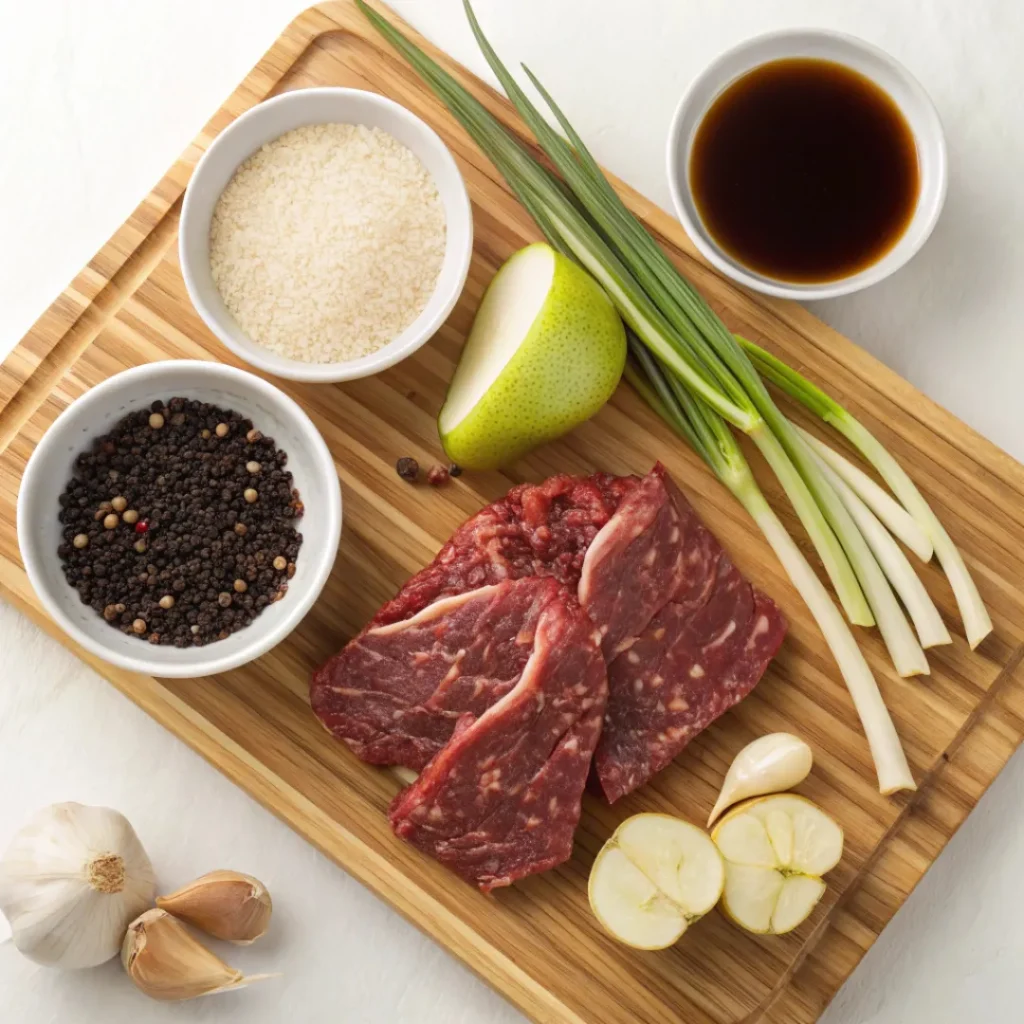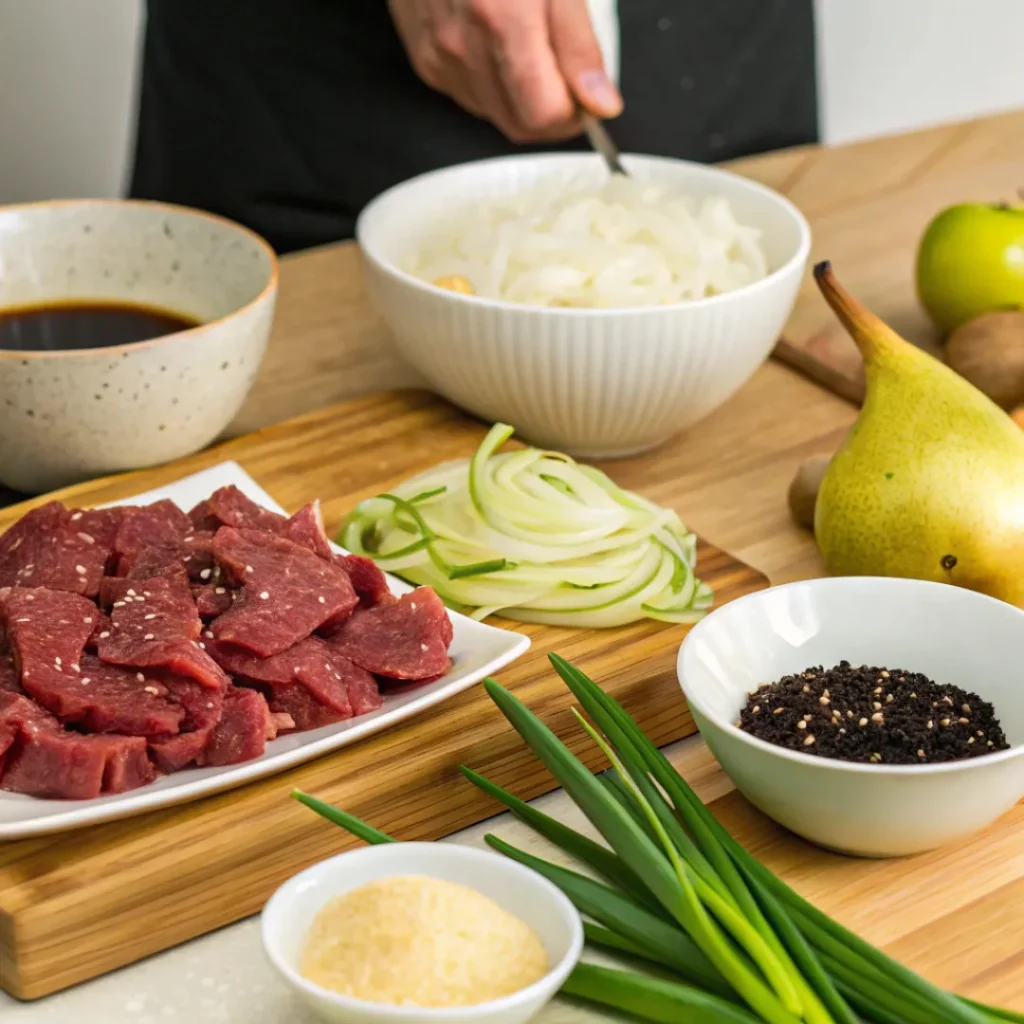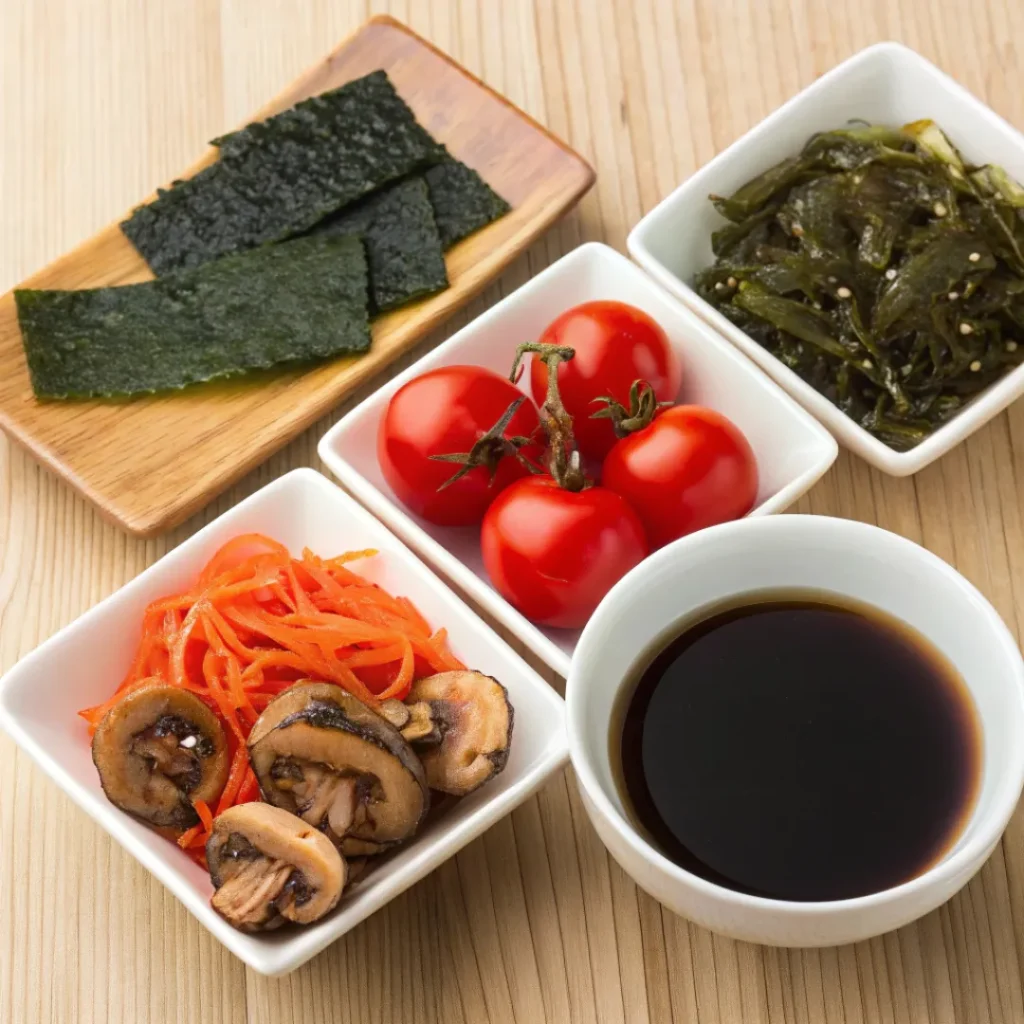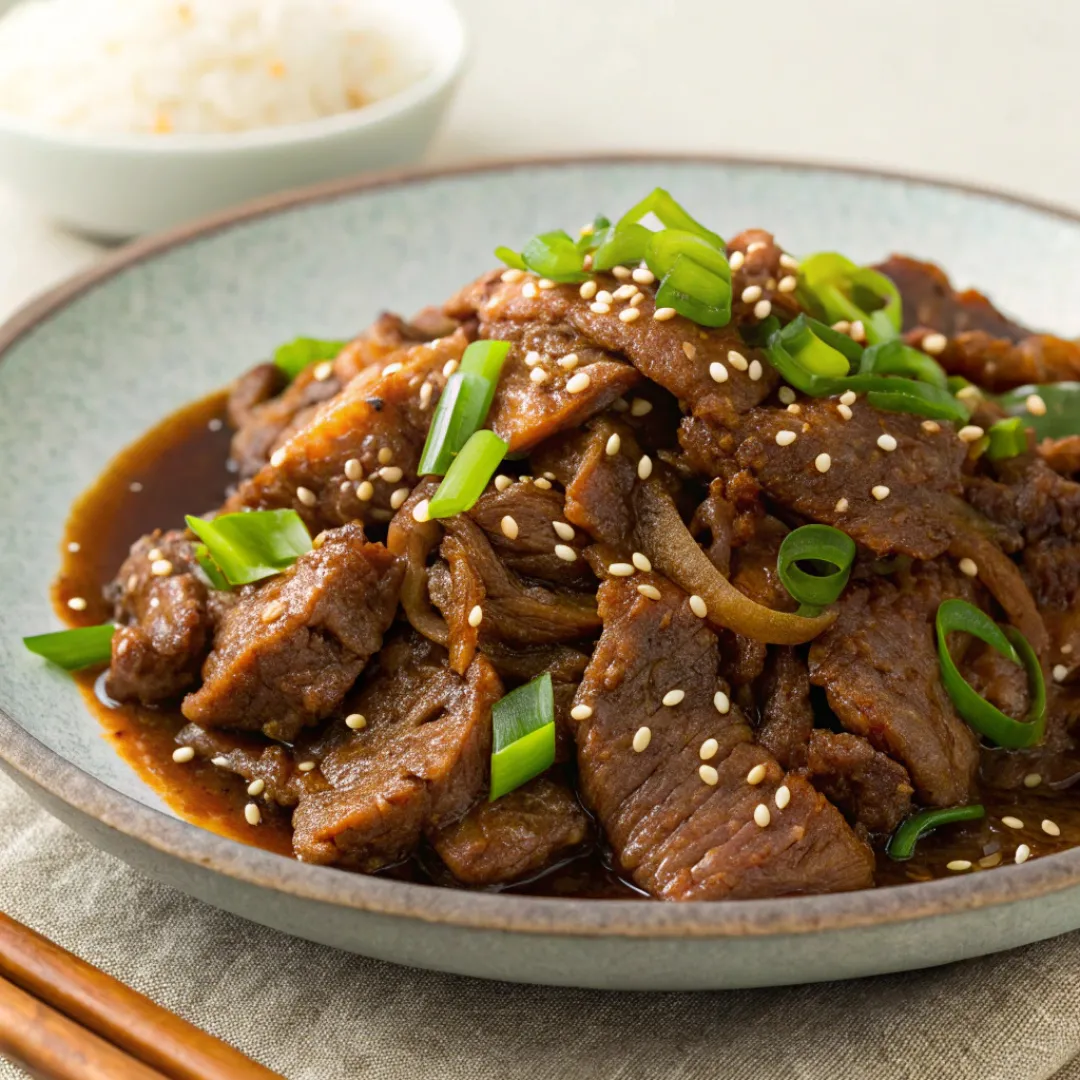Beef bulgogi is a beloved Korean dish enjoyed worldwide. As its popularity grows, many people are curious: Does beef bulgogi have MSG? Known for its tender, marinated beef slices that offer a flavorful combination of sweet, salty, and umami tastes, bulgogi is both a comfort food and a gourmet delight. With increasing concerns about additives, especially MSG, understanding the ingredients in beef bulgogi has become important.
This guide explores the traditional preparation of beef bulgogi, the role of MSG in cooking, and whether MSG is present in this iconic dish. Whether you’re a food enthusiast or cautious about what you eat, this article will help you enjoy beef bulgogi with confidence.
What Makes Beef Bulgogi So Delicious?
Bulgogi, which means “fire meat” in Korean, is typically made with thin slices of beef, such as ribeye or sirloin. The meat is marinated, then quickly grilled or stir-fried. The balance of sweet, salty, and umami flavors, along with the tender texture, makes this dish irresistible.
Bulgogi holds a significant place in Korean culture, often enjoyed during family gatherings and special occasions. It represents the warmth and hospitality of Korean dining traditions. If you’re interested in learning more about the cultural significance and diversity of Korean cuisine, you can explore An Introduction to Korean Cuisine.
Key Ingredients in Traditional Beef Bulgogi
To understand whether MSG is used in beef bulgogi, let’s look at the key ingredients:

Beef
High-quality cuts like ribeye and sirloin are favored. Their marbling enhances the dish’s flavor and tenderness.
Soy Sauce
This adds depth and umami to the marinade. Naturally brewed soy sauce contains glutamates, which contribute to a savory taste similar to MSG.
Sugar or Honey
Sweetness balances the soy sauce’s saltiness and helps caramelize the meat when cooked.
Sesame Oil
A small amount of sesame oil imparts a rich, nutty flavor.
Garlic
Garlic adds a robust, aromatic element that enhances the dish’s overall taste.
Green Onions
They provide a mild, fresh flavor that contrasts with the richness of the beef.
Pear or Apple
Grated pear or apple in the marinade naturally tenderizes the meat and adds subtle sweetness.
Black Pepper
A touch of black pepper adds mild heat and complexity.
These ingredients combine to create a marinade that flavors and tenderizes the beef, ensuring each bite is flavorful and juicy.
The Science Behind Umami and MSG
Umami, often described as the fifth taste, is a savory flavor that enhances the overall taste of a dish. It’s naturally present in foods like tomatoes, cheese, seaweed, and meat. This taste comes from glutamates, naturally occurring amino acids.
MSG, or monosodium glutamate, is a flavor enhancer first isolated by Japanese chemist Kikunae Ikeda in 1908. He found that glutamate, found in foods like seaweed, is responsible for the umami flavor. MSG, the sodium salt of glutamic acid, intensifies the natural flavors of foods.
MSG in Korean Cuisine
In Korean cuisine, MSG sometimes enhances both home-cooked and restaurant dishes, particularly processed foods or when a dish requires a significant umami boost. However, traditional Korean recipes often rely on natural sources of umami, such as fermented ingredients like doenjang (fermented soybean paste), gochujang (fermented chili paste), and soy sauce.
The use of MSG in Korean cooking is not universal. Many chefs and home cooks prefer to achieve rich flavors through time-honored techniques and ingredients, without relying on artificial additives. This approach is especially true for dishes like bulgogi, where the focus is on the quality of the meat and the balance of natural flavors in the marinade.
Does Traditional Beef Bulgogi Contain MSG?
Traditional beef bulgogi does not require MSG. The umami flavor that makes bulgogi so appealing is naturally derived from ingredients like soy sauce, garlic, and the sugars in the fruit used in the marinade. The balance of these ingredients creates a rich and savory profile without additional flavor enhancers.
However, the globalization of bulgogi has led to variations in its preparation, especially in pre-packaged marinades and restaurant versions of the dish. In some cases, MSG may be added to these versions to enhance the flavor or to appeal to palates accustomed to MSG-enhanced foods.
Commercially Prepared Bulgogi Marinades and MSG
When purchasing pre-made bulgogi marinades, it’s essential to read the labels carefully. Some commercially prepared marinades may include MSG to achieve a more intense umami flavor. MSG might be listed under several names, including:
- Monosodium Glutamate
- Glutamate
- Hydrolyzed Vegetable Protein
- Yeast Extract
- Autolyzed Yeast
- Flavor Enhancer (E621 in Europe)
If you’re looking to avoid MSG, seek out marinades labeled “No MSG” or “MSG-Free.” These products typically use higher-quality ingredients to replicate the deep, savory flavors of traditional bulgogi without the need for added glutamate.
The Controversy Over MSG: Is It Safe?
MSG has been a topic of controversy since the 1960s when individuals reported experiencing symptoms such as headaches, flushing, and sweating after consuming foods containing MSG. This phenomenon, often referred to as “Chinese Restaurant Syndrome,” led to widespread concern and misconceptions about the safety of MSG.
However, extensive research has shown that MSG is safe for the general population when consumed in normal amounts. The U.S. Food and Drug Administration (FDA) classifies MSG as “generally recognized as safe” (GRAS), a designation also supported by the World Health Organization (WHO) and the European Food Safety Authority (EFSA).
Most reported reactions to MSG are mild and temporary, and studies have not consistently shown a link between MSG and long-term health problems. Nevertheless, a small percentage of people may be sensitive to MSG and experience symptoms like headaches or nausea after consuming it.
For those who are sensitive to MSG or prefer to avoid it, many natural alternatives can enhance umami flavors without the use of additives.
Making MSG-Free Beef Bulgogi at Home
If you’re concerned about the presence of MSG in beef bulgogi, the best way to enjoy this dish is to prepare it at home using fresh, high-quality ingredients. Here’s a detailed recipe for making authentic, MSG-free beef bulgogi:

Ingredients:
- 1 lb thinly sliced beef (ribeye or sirloin)
- 1/4 cup naturally brewed soy sauce (ensure it’s free from MSG)
- 2 tablespoons sugar or honey
- 2 tablespoons sesame oil
- 3 cloves garlic, minced
- 1/2 onion, finely chopped
- 1 pear or apple, grated (optional but recommended for tenderizing)
- 2 green onions, chopped
- 1 teaspoon black pepper
- 1 tablespoon sesame seeds (for garnish)
Instructions:
Prepare the Marinade
In a large bowl, combine the soy sauce, sugar or honey, sesame oil, garlic, chopped onion, and grated pear or apple. Mix well until the sugar fully dissolves.
Marinate the Beef
Add the thinly sliced beef to the marinade, ensuring that each piece is thoroughly coated. Cover the bowl and refrigerate for at least 1 hour, though overnight is best for maximum flavor.
Cook the Beef
Heat a grill pan or skillet over medium-high heat. Once hot, add the marinated beef in a single layer, cooking for 2-3 minutes on each side until browned and cooked through. Avoid overcrowding the pan to ensure even cooking.
Serve
Garnish the cooked beef with chopped green onions and sesame seeds. Serve with steamed rice, kimchi, and other Korean side dishes (banchan) for a complete meal.
By making beef bulgogi at home, you can enjoy the authentic flavors of this dish without worrying about added MSG or other unwanted additives.
Natural Alternatives to MSG for Enhancing Umami
For those who want to boost the umami flavor in their cooking without using MSG, several natural alternatives can be used in beef bulgogi and other dishes:

Soy Sauce
Naturally brewed soy sauce is rich in glutamates and can enhance the savory taste of a dish without the need for added MSG.
Miso Paste
Miso, made from fermented soybeans, is a powerful umami booster. It can be used in marinades, soups, and sauces to add depth and complexity.
Tomatoes
Tomatoes, especially when cooked or concentrated into paste, are naturally high in glutamates and can enhance the savory profile of a dish.
Mushroom
Dried mushrooms, like shiitake, are rich in natural glutamates and can be rehydrated and used in various recipes to add umami.
Seaweed
Seaweed, particularly kombu, is a traditional source of glutamates in Japanese cooking and can be used in broths and marinades.
These alternatives not only enhance flavor but also add nutritional value to your dishes, making them a great choice for those looking to avoid artificial additives.
Frequently Asked Questions
Is MSG bad for your health?
MSG is generally recognized as safe by the FDA and other health authorities. However, some people may experience mild, short-term symptoms like headaches or flushing after consuming it.
Can I make beef bulgogi without MSG?
Yes, you can easily make MSG-free beef bulgogi at home using natural ingredients like soy sauce, garlic, and sesame oil.
How can I tell if a store-bought bulgogi marinade has MSG?
Check the ingredient label for MSG or its synonyms, such as “glutamate” or “yeast extract.”
What are some natural alternatives to MSG?
Soy sauce, miso paste, tomatoes, mushrooms, and seaweed are all rich in natural glutamates and can enhance the umami flavor in your cooking.
Does traditional Korean cuisine use MSG?
While some Korean recipes may include MSG, traditional Korean cooking often relies on natural sources of umami, such as fermented soy products and seaweed.
Conclusion
So, does beef bulgogi have MSG? The answer is: it depends. Traditional beef bulgogi, as made in Korean homes, does not typically contain MSG. The dish’s rich, umami flavor is achieved through a careful balance of natural ingredients like soy sauce, garlic, and fruit. However, some commercially prepared marinades and restaurant versions may include MSG to enhance the flavor.
For those concerned about MSG, the best way to enjoy beef bulgogi is to prepare it at home, using fresh, natural ingredients. By doing so, you can savor the authentic flavors of this beloved Korean dish without worrying about any unwanted additives.

